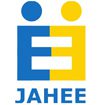WP 7 – Migration and health
Objectives
The overall objective of this Work package (WP) is to bridge the policy practice gaps, in order to reduce inequalities in the health of international migrants (in the European context we are not addressing internally displaced populations hence the term international) in the short, medium and long term. While there is no single agreed upon legally binding definition of an international migrant, the widely accepted definition is someone who changes his or her country of usual residence, irrespective of the reason for migration or legal status. Generally, a distinction is made between short-term or temporary migration, covering movements with a duration between three and 12 months, and long-term or permanent migration, referring to a change of country of residence for a duration of one year or more. Migrants are a heterogeneous and comprise of several subgroups with very different entitlements and health presuppositions.
These groups include ‘people of concern’ (resettlement refugees, asylum seekers, those who cannot be returned and migrants in irregular situations, internally displaced persons) migrant workers, international students, au pairs, family reunification and those granted settlement on humanitarian grounds to name a few. Within the framework of the JAoint Action , each Member State will have a different composition of these subgroups and therefore it is appropriate that the subgroups showing the highest potential benefit from the JA in the local context. It is important however to state that in this WP all groups will be included not only refugees and asylum seekers.
The specific objectives of this WP are:
- to support the Member States in the identification of policy practice gaps that contribute to inequalities in the health of migrants at the national level;
- to support Member States in engaging cross-sectorial stakeholders, decision makers and communities in promoting practices based on the best available evidence related to migrant health at all stretches of the migration pathways, also by selecting and using relevant existing EU tools;
- to support Member States in improving the skills and competence of the health workforce (doctors, psychologists, nurses etc.) related to migrants’ health (especially related to the health of women, children and young migrants that lack family support and parental guidance), also by selecting and using relevant existing EU tools, such as materials developed in the previous and on-going EU funded projects and studies.
Contacts
Bernadette N. Kumar (e-mail: bernadette.kumar@nakmi.no)
Charlott Nordström (e-mail: CharlottEliseGyllenhammar.Nordstrom@fhi.no)
